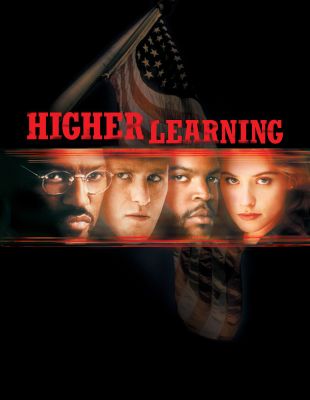
Though it's overwrought and unrealistic, this ensemble drama from John Singleton was the first, and perhaps only, film to treat the identity politics of fin-de-siècle American universities as a subject for exploration rather than critique (Oleanna) or sophomoric parody (P.C.U.). Despite the heavy-handedness of Singleton's script, Higher Learning actually presents a pretty good cross section of the average state school, which often serves as the first taste for isolated teens of the melting pot they've been hearing about since the start of kindergarten. Omar Epps and Michael Rappaport turn in typically strong work as the track-star protagonist and his budding neo-Nazi foil; both characters come under the influence of ideological older men, setting the stage for both thoughtful character development and overwrought dramatics. Along the way we also get a typically fine supporting turn from Singleton regular Regina King and plenty of cool-cat attitude from a perfectly cast Ice Cube. The weakest of the three main plot strands is the one involving Kristy Swanson's date-rape survivor and tentative lesbian. Swanson actually acquits herself admirably, but the part is clumsily written; it's galling to see yet another film that thinks all lesbians are merely women who hate men, however justified. Throw in the inevitable Tori Amos track during the rape sequence and Jennifer Connelly's serene sapphic sister (named, of course, Taryn) and you've got so many lesbian clichés strung together that the film practically becomes a feminist camp classic. Still, Singleton's sympathetic look at the struggles of a variety of incoming freshmen gives the film breadth (and wider marketing opportunities than his previous efforts); the script also deftly intertwines the paths of its characters, resulting in a film that feels like a unified whole. Laurence Fishburne's regal, concerned professor may be a far cry from the clueless TAs who teach most freshmen courses at big schools, but his performance gives a much-needed grown-up perspective to a film that sometimes mirrors the callowness of its younger characters.
